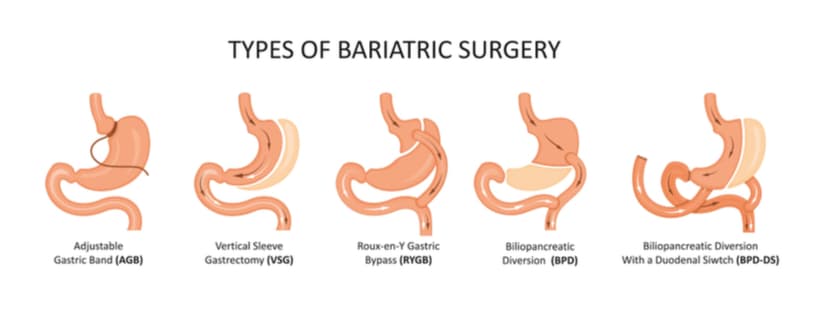Medical tourism for weight loss surgery requires urgent global regulation
A new commentary in BMJ Global Health calls for immediate international regulation of bariatric surgery medical tourism, highlighting significant safety, ethical, and legal risks despite the industry’s rapid growth and potential benefits for obesity treatment access.
The booming medical tourism industry for bariatric and weight loss surgery requires immediate international regulation to protect patients’ health and safety, according to a new commentary published in BMJ Global Health on 15 July 2025.
Despite the anticipated impact of new weight loss medications, the number of people travelling abroad for bariatric surgery continues to rise, driven primarily by cost considerations and shorter waiting times. The authors highlight that private bariatric surgery in the UK costs approximately £10,000-£15,000, whilst the same procedures can be accessed in countries such as Turkey for £2,500-£4,500.
Industry growth outpaces safety measures
The wider medical tourism industry is valued at over $400 billion annually, with projected year-on-year growth of 25%, yet bariatric medical tourism (BMT) remains largely unregulated. Dr Jessica McGirr of the Obesity Research and Care Group at RCSI University of Medicine and Health Sciences, Dublin, and Imperial College London, along with colleagues, emphasise the urgent need for comprehensive oversight.
The largest global survey of bariatric medical tourism providers revealed that 71% of patients self-refer for surgery. They may therefore not have appropriate medical indication to undergo major surgery. “Ineligibility for this type of surgery in their home country is often cited by patients as a reason for accessing it overseas,” the authors note.
Significant safety concerns emerge
The commentary identifies multiple safety risks associated with unregulated bariatric medical tourism. A descriptive analysis of online websites by BMT providers found that only one of 34 centres provided information about complication rates, creating substantial information asymmetry for patients making treatment decisions.
The authors highlight particular concerns about the absence of preoperative assessment, long-term nutritional and psychological follow-up, and multidisciplinary care – all considered integral to appropriate case selection. “When considering adverse outcomes, including anastomotic leakage, sepsis, and even death, equally concerning is the absence of regulation to ensure that only accredited procedures are performed by appropriately qualified providers,” they state.
Additional risks arise from medical tourism ‘packages’ offering multiple procedures within single trips, often accompanied by financial incentives despite lacking evidence-based support and carrying increased complication risks.
Ethical and legal challenges
The research reveals significant ethical concerns within the industry. A global survey of BMT providers found that 30% believed the consent process was ‘inappropriate’, whilst 14% believed patients were personally responsible for surgical complications. These findings raise serious questions about patient protection and legal recourse in cases of adverse outcomes.
The authors argue that the lack of regulation creates unclear legal positions for patients seeking redress, highlighting the need for comprehensive frameworks to protect patient rights across international borders.
Impact on healthcare systems
The commentary examines the complex implications for both home and destination countries. Whilst single-payer healthcare systems may benefit financially from reduced surgical waiting lists, significant concerns arise regarding the cost and resources required to manage postoperative complications in returning medical tourists.
“Several countries have reported significant impact of such presentations on local healthcare systems,” the authors note, emphasising the need for regulation to maximise benefits whilst minimising harm to limited healthcare resources.
Destination country considerations
The research highlights that medical tourism flow is dominated by travel from high-income to low- and middle-income countries, with recent reports identifying Poland, Turkey, and Mexico as having the greatest number of clinics offering bariatric surgery globally.
The authors warn that government motivation to invest in healthcare workers and infrastructure to boost medical tourism trade creates risks for local populations, potentially diverting investment from basic public health services towards private sector development.
International collaboration essential
The commentary proposes a comprehensive regulatory framework requiring transnational collaboration among multiple stakeholders. The authors identify key actors including the World Trade Organisation, World Health Organization, European Union, and various national governmental departments, alongside international surgical bodies and patient advocacy groups.
Priority areas for regulation include restriction of marketing practices, standardisation of perioperative management, development of accredited international surgical training programmes, implementation of transparent accreditation processes, and establishment of 30-day outcome data collection systems.
Conclusion and recommendations
The authors conclude that whilst the BMT industry provides opportunities for quicker access to effective obesity treatment, the potential for safety, ethical, and legal risks alongside unintended negative consequences and widening health inequity are significant.
“This unregulated industry presents opportunity for quicker access to effective treatment for individuals with obesity but carries potential safety, ethical, and legal risks,” they state. “Establishing regulation through transnational collaboration is essential to protect health and health equity.”
The commentary calls for immediate action to establish international regulatory frameworks before the industry’s continued growth creates greater risks for patients and healthcare systems worldwide.
Reference
McGirr, J., Gregg, E. W., McNamara, D. A., et. al. (2025). Bariatric and metabolic surgery medical tourism: the compelling need for regulation through transnational collaboration. BMJ Global Health, 10, e019546. https://doi.org/10.1136/bmjgh-2025-019546


